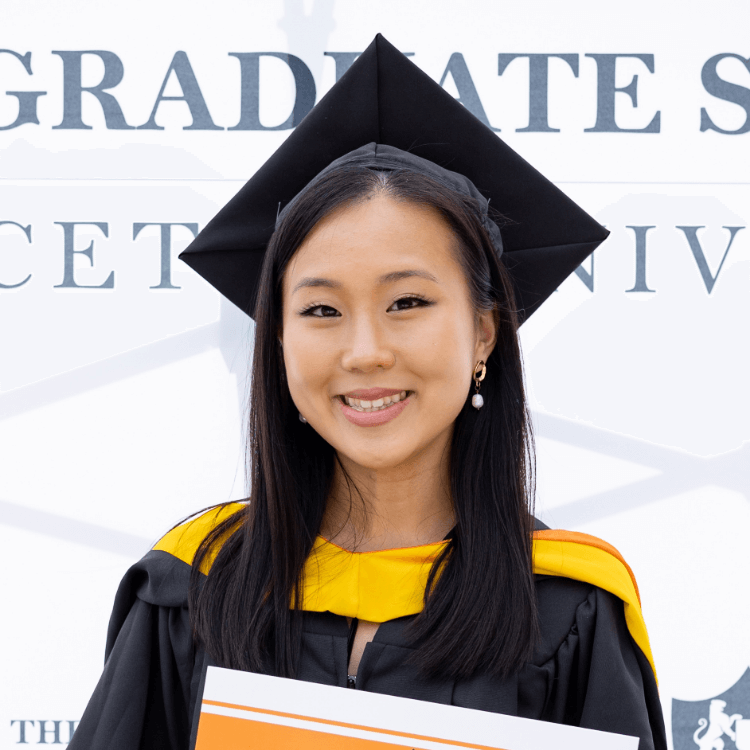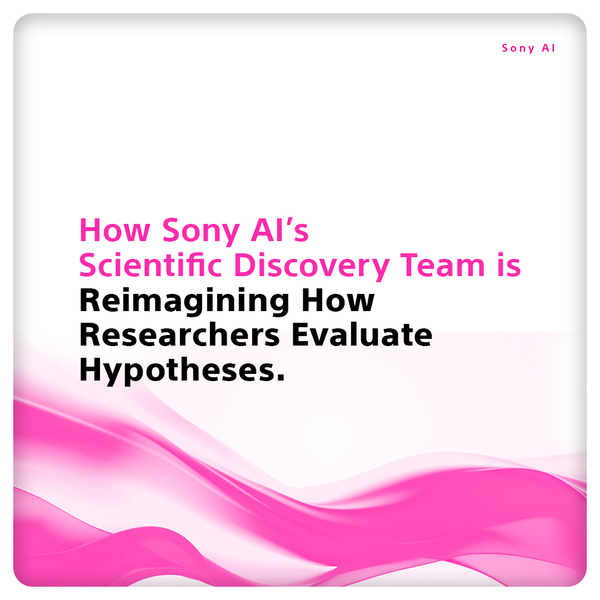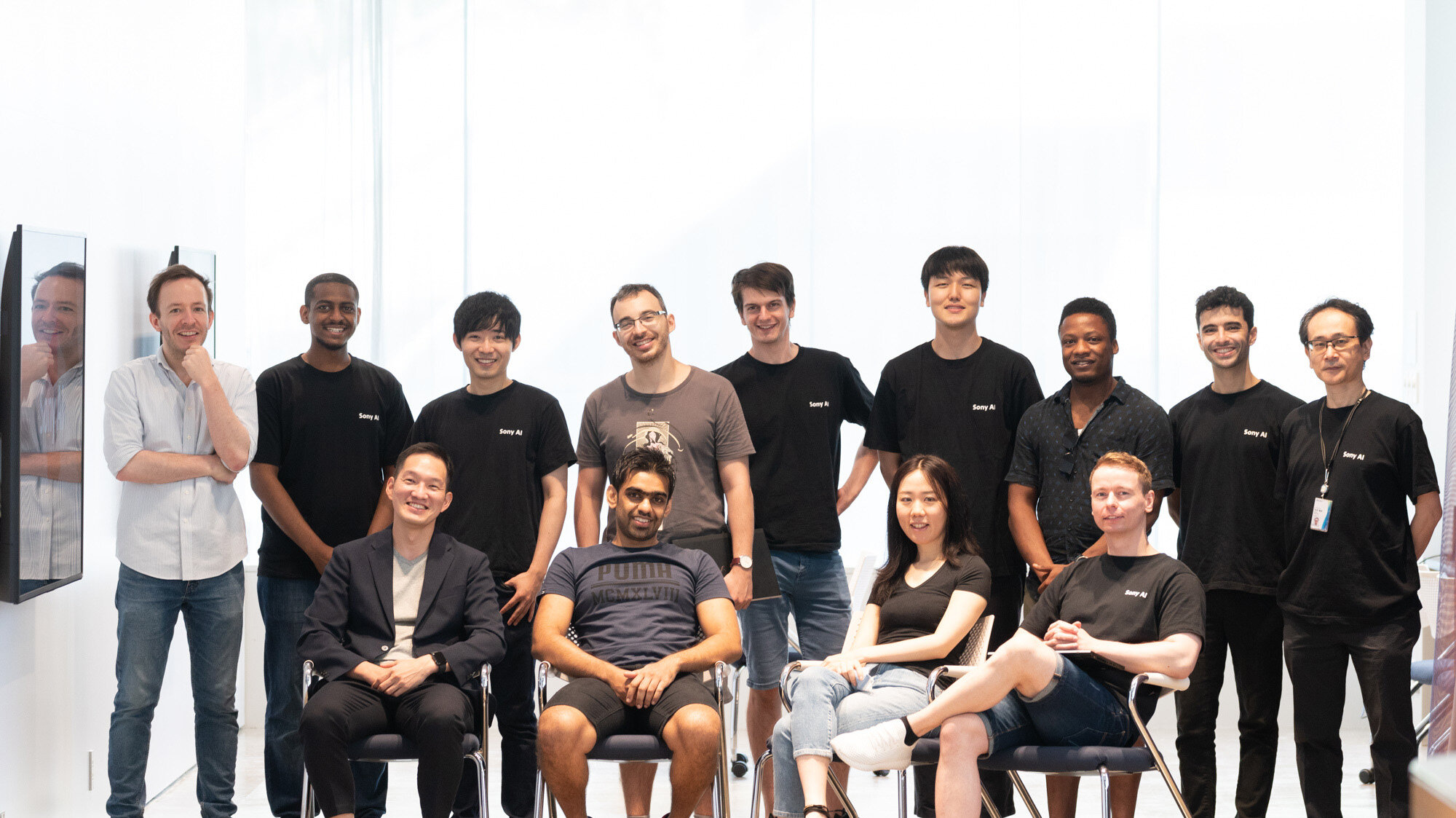Meet the Team #7: Victoria Matthews, Julienne LaChance, Dora Zhao
Life at Sony AI
May 11, 2023
AI Ethics sits at the core of our activities at Sony AI. In this installment of our Meet the Team series, meet members of our growing AI Ethics team. This month we feature Victoria, Julienne, and Dora, who share their role in developing new tools and techniques that can be used safely by global Sony Group companies in critical domains such as AI policy and computer vision.
Victoria Matthews
AI Policy Specialist
Based In
New York, United States
Areas of Speciality
AI Policy

What made you interested in working in AI ethics?
During my studies, I witnessed companies, governments, and global institutions begin to make sweeping commitments to uphold ethical principles in their AI research and development. I was encouraged by promises to use AI for public benefit and to reduce harm. But, many AI developments still seemed to be advancing faster than the legal and policy frameworks that could govern them. I was driven by the possibility of using policy tools to turn AI ethics principles into actionable requirements and to address AI issues like bias, poor data, inadequate privacy and consent, unfair working conditions, and other harms. So, throughout my graduate studies, I took a deep dive into how global regulation and emerging government standards could promote ethical AI development and responsible data governance. I feel very lucky to continue these pursuits at the intersection of policy and ethics at Sony AI.
What made you excited to join Sony AI and what do you hope to accomplish?
Joining the flagship AI ethics team at Sony AI has allowed me to work with brilliant scientists and leaders, each driven by ingenuity in AI research and bringing expertise from all corners of the globe. It has been especially exciting to become a part of this team at a time when AI is integrating across so many aspects of our lives, highlighting the need for trustworthy, fair, and accountable AI technologies. Sony stood out to me as a company whose vision for AI prioritized ethics across several stages: AI ethics is both core to Sony AI’s research activities, as well as to how Sony screens its AI products. I would be delighted to use my understanding of policy to help the team continue to reflect and shape global standards for AI fairness, accountability, and transparency.
What would you say if you had to give one piece of advice to an individual starting a career in AI ethics?
Solving AI ethics problems and approaching AI policy solutions should involve interdisciplinary perspectives. If you are an individual who finds joy in exploring challenging issues at the intersection of philosophy, law, science, and sociology, then AI ethics will be a rewarding pursuit for you. The same can be said if you find excitement in uncertainty, in learning from experts from diverse disciplines, and, above all, in thinking about AI technologies using different frameworks and value systems to your own. Many of the most important questions we currently face about how to design, evaluate, and deploy trustworthy AI systems depend on such collaboration.
Victoria joined Sony AI as an AI Policy Specialist in 2023 after completing her master's degree in Technology Ethics and Policy from Duke University, consulting on technology ethics issues, and graduating from the University of Oxford. Her work was supported by the Science and Society Leadership Scholarship, awarded to future leaders making scientific advancements more accessible, just, and better integrated into society. Her research interests include global AI regulation, responsible data governance, and exploring policy tools to promote fairness, accountability, and transparency in AI.
Julienne LaChance
AI Research Scientist
Based In
New York, United States
Areas of Speciality
Computer Vision, AI Ethics

What made you interested in working in AI ethics?
I have always been passionate about developing and using technology for social good. AI Ethics is a field that allows researchers to entirely focus on this goal: whether it's reducing bias in existing technologies to make AI work better for people in society or conceptualizing new areas where AI can make a positive impact. It's very exciting to me to work in a highly interdisciplinary field where AI technologists can work closely with sociologists, legal scholars, and experts in a myriad of domains.
What has been your favorite part about working at Sony AI?
My favorite part has been mentoring graduate student interns! Last summer, I served as the Intern Coordinator for five graduate students interning with our team. Our interns had great research flexibility to pursue projects engaging to them, as guided by Research Scientists on the team. My PhD student performed excellent research centered around large-scale image data collection in low- and middle-income nations in Africa. It meant quite a lot to us both to be able to support novel research in a region of the world that has, historically, been rather understudied in the field of AI Ethics.
What are your thoughts about the future of AI and AI Ethics?
I anticipate that AI Ethics scholars will take on a more global perspective. Nearly all AI Ethics research is performed in wealthy Western nations, and the research goals within the field reflect this location bias. I believe there will be more scholarship in the future that focuses on AI applications in the "global South" and captures a wider range of diversity measures. Additionally, I hope that AI Ethics scholars draw more closely upon classic literature from other research fields. The growing public awareness of AI Ethics concepts is likely to influence AI development and deployment as well. I hope that more meaningful AI policies and regulations are effectuated in this area, particularly as they pertain to AI model transparency, recourse, and evaluations.
Julie joined Sony AI in 2021 as an AI Research Scientist after completing a PhD and postdoc at Princeton University. She holds five degrees spanning Applied Mathematics and Mechanical/Aerospace Engineering and brings her expertise in computer vision to the AI Ethics team.
Dora Zhao
AI Engineer
Based In
New York, United States
Areas of Speciality
Fairness and Social Biases in Computer Vision Systems

What made you interested in working in AI ethics?
As an undergraduate, I took a sociology course with Professor Ruha Benjamin called “Race is Socially Constructed: Now What?” As a part of the class, we covered the intersection of race and technology, including how existing technical systems can perpetuate social biases. While this is now a familiar topic to me, this course opened my eyes to how these technical systems, which many view as being “objective,” can actually perpetuate and amplify harmful social biases. After reading more literature on this topic, such as Safiya Noble’s “Algorithms of Oppression: How Search Engines Reinforce Racism” as well as Joy Buolamwini and Timnit Gebru’s foundational “Gender Shades” work, I decided that I wanted to pursue research in this area as well. During my undergrad and Master’s, I worked in the Visual AI Lab at Princeton University, conducting research on fairness in computer vision. I have been fortunate to continue this line of work at Sony AI.
What made you excited to join Sony AI and what do you hope to accomplish?
I joined Sony AI first as a research intern in May 2021 and returned as a full-time employee after completing my Master’s in 2022. I was excited about joining Sony AI since it seemed that the Ethics team and the research we were doing was not only respected but also essential to the organization. The emphasis that Sony places on responsible AI practices aligned with my own values, which was an important factor for me.
AI Ethics is an inherently interdisciplinary field, and one of the great things about our team is that we approach issues with both a technical and sociotechnical lens. I hope that this allows us to communicate with more communities about AI ethics issues — not just computer scientists but also social scientists, lawyers, and policymakers — and conduct broadly impactful research.
What has been your favorite part about working at Sony AI?
I enjoy the fact that our team is so globally diverse. Definitions of "fairness" and "bias" are highly contextual depending on culture. Yet, at the moment, much of the work in the AI Ethics space has focused on Western (and often specifically American) conceptions of fairness and bias. Especially as someone who grew up and attended school in the US, learning from my team members' different perspectives on AI Ethics issues has been valuable in broadening my own worldview.
Dora is an AI engineer, with a focus on AI Ethics, at Sony AI. She began her work at Sony AI as a research intern on the AI Ethics team, where she worked on using synthetic methods to balance datasets. Prior to joining Sony AI, Dora received her Bachelor’s and Master’s degrees, with a focus on Computer Science, at Princeton University. Her research interests span computer vision and machine learning fairness, as well as human-computer interaction.
Latest Blog

February 2, 2026 | Sony AI
Advancing AI: Highlights from January
January set the tone for the year ahead at Sony AI, with work that spans foundational research, scientific discovery, and global engagement with the research community.This month’s…

January 30, 2026 | Sony AI
Sony AI’s Contributions at AAAI 2026
Sony AI’s Contributions at AAAI 2026AAAI 2026 is a reminder that progress in AI isn’t one straight line. This year’s Sony AI contributions span improving and enhancing continual le…

January 26, 2026 | Sony AI
How Sony AI’s Scientific Discovery Team is Reimagining How Researchers Evaluate …
In today’s research landscape, thousands of scientific papers are published each day; a metaphorical sea of knowledge. Even domain experts struggle to keep up. As Pablo Sánchez Mar…







